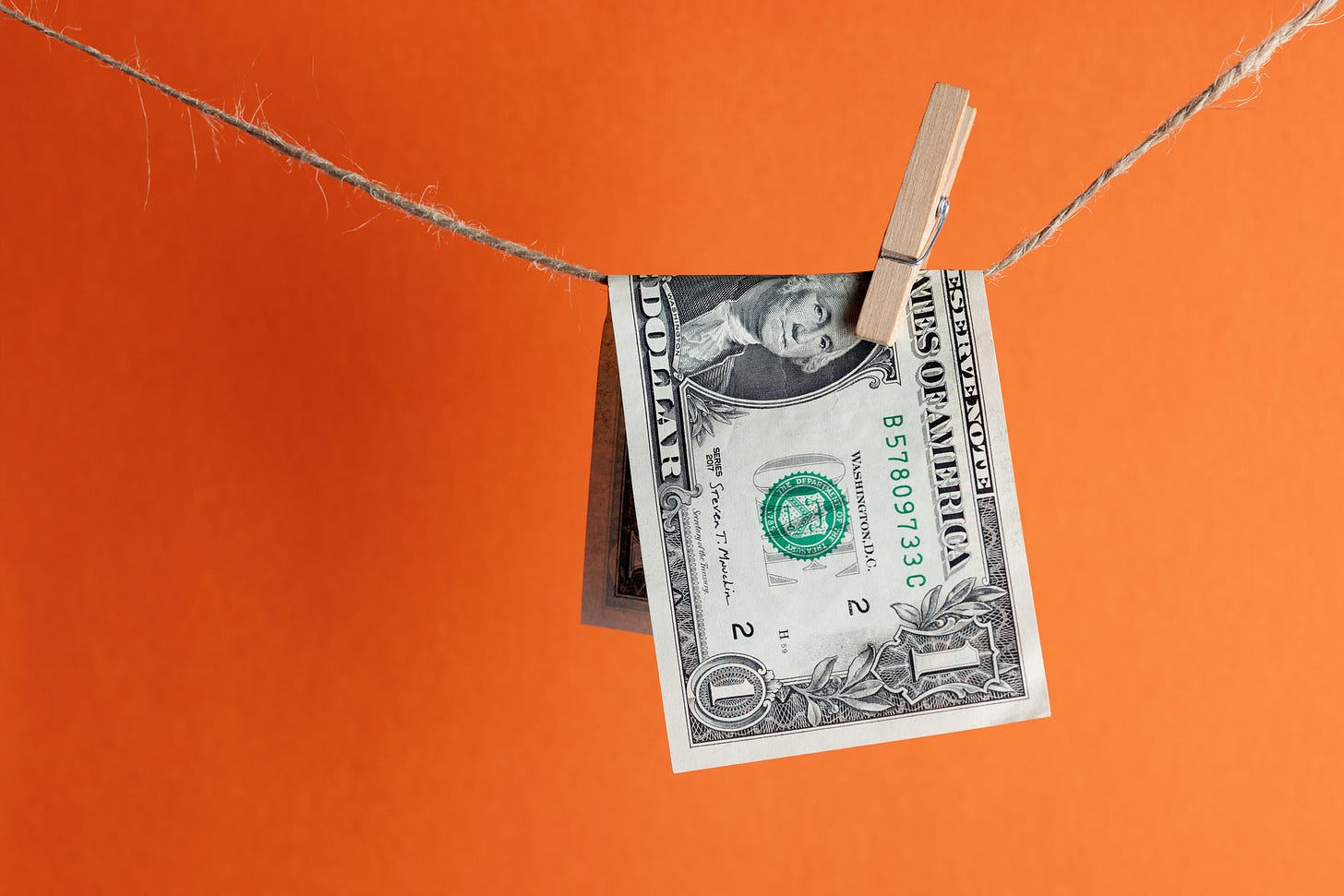Welcome to Yaka Stuff, our weekly newsletter that covers news, industry perspectives, and updates from the Hard Yaka ecosystem. Check out our last report here.
This week:
U.S. government investigates Tether
CFPB unveils open banking rules
Greg Kidd: Nevada's risk-taking makes it exceptional
Chart of the week: Crypto’s political spending
Stuff happens
1. U.S. government investigates Tether
That’s according to an exclusive report from the WSJ on the world’s largest stablecoin by total issuance (via Sam Ostler):
The federal government is investigating cryptocurrency company Tether for possible violations of sanctions and anti-money-laundering rules, according to people familiar with the matter.
The criminal investigation, run by prosecutors at the Manhattan U.S. attorney’s office, is looking at whether the cryptocurrency has been used by third parties to fund illegal activities such as the drug trade, terrorism and hacking—or launder the proceeds generated by them.
The Treasury Department, meanwhile, has been considering sanctioning Tether because of its cryptocurrency’s widespread use by individuals and groups sanctioned by the U.S., including the terrorist group Hamas and Russian arms dealers. Sanctions against Tether would generally prohibit Americans from doing business with the company.
And the reason is pretty straightforward. Tether is being used by all the bad actors that the U.S. probably considers the baddest. From the report:
Tether is the world’s most traded cryptocurrency, with as much as $190 billion changing hands each day. It is also a vital financing tool for several of the U.S.’s top national-security concerns. These include the North Korean nuclear-weapons program, Mexican drug cartels, Russian arms companies, Middle Eastern terrorist groups and Chinese manufacturers of chemicals used to make fentanyl, The Wall Street Journal has previously reported.
Such is the double-edged sword of stablecoins. On the one hand, they promote open access to the U.S. dollar around the world, allowing them to be held by anyone with minimal transactions and near instant settlement. On the other, the lack of identifying requirements make them a hotbed for illicit activities.
Tether, for its part, denied the allegations:
Tether said it had no indication the company is facing a broader investigation. “To suggest that Tether is somehow involved in aiding criminal actors or sidestepping sanctions is outrageous,” the company said. “We work actively with U.S. and international law enforcement to combat illicit activity, as we’ve publicly demonstrated many times.”
Relevant:
Stripe's Acquisition of Bridge Validates the Usage of Stablecoins: Bernstein
USDT and USDC Account for 50% of Transaction Volume Among Crypto Assets: ITB
2. CFPB unveils open banking rules
Here’s American Banker (via Chris Lewis):
The Consumer Financial Protection Bureau added payment apps and other financial products to its final open banking rule and in keeping with its focus on innovation, provided for some secondary uses of data.
The CFPB is expected to release the final rule Tuesday, but materials describing the final rule were made available to American Banker prior to its release.
The final rule hews closely to the CFPB's proposal from a year ago but appears to include some substantive changes to the rule's scope, secondary uses and the compliance period, which has been extended by 10 months for the largest banks. The open banking rule is referred to by the industry as "1033" for the section in the Dodd-Frank Act of 2010 that gave the CFPB authority to implement how consumers control their own financial data.
The CFPB's rule requires that banks safely share financial data on checking accounts, prepaid cards, credit cards, mobile wallets, payment apps and other financial products. Payment apps and other financial products were added in the final rule, sweeping Apple Pay, Google Pay, PayPal, Zelle and Venmo and other apps into the scope of the rule. The change is further proof that third-party apps are dominant forces in banking and payments.
3. Greg Kidd: Nevada's risk-taking makes it exceptional
Hard Yaka co-founder and chief Greg Kidd is running for Congress in Nevada’s second district, and with the election right around the corner, he’s published a new op-ed in the Reno Gazette Journal:
As we enter these last days before the election, I’m constantly reminded of Nevada exceptionalism. To me, that means having the courage and ingenuity to manage risk and to make smart bets. That's in our history — from legalized gambling (which turned our state into a major tourist destination and economic powerhouse) to mining and the discovery of the Comstock Lode, to creating new and innovative opportunities (like quickie divorces and the sex industry) where other states did not dare to go.
Despite the constant political bickering in Congress, Renoites haven’t been given a way to leap over the chaos and to use their vote to say, “Enough already! Let’s get to work on the issues!” I’m proud to be the nonpartisan candidate here in Northern Nevada, where nonpartisan voters outnumber Republicans and Democrats. We’re the underdog in this race and that’s OK by me, because I’d rather run hard toward the future, with all its risks and opportunities, than stay stuck in our broken present.
Reno should be thriving, yet we continue to struggle because we do not have a representative in Congress that puts Nevada first with a plan for the future.
Read more: Nevada's risk-taking makes it exceptional | Greg Kidd
4. Chart of the week: Crypto’s political spending
Chart via Axios





